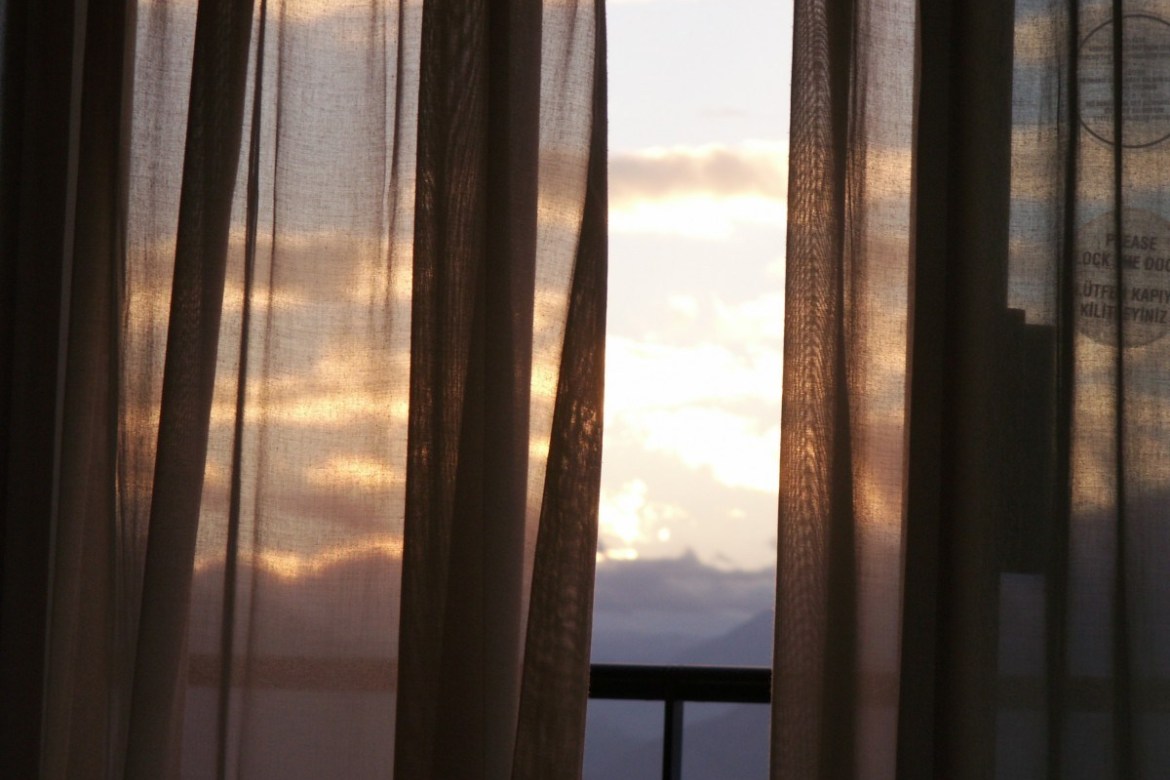The doctors had told my-mother-in law, Karen, that there was nothing more they could do for her. How can we navigate unexpected suffering, trauma, and the ups and downs of being human? The first step is awareness. We choose to notice what is happening just in this moment. Instead of focusing on the past or future, we choose to be here, now. When we stay present with our breath in the moment, we learn to respond wisely instead of react reflexively to life’s challenges.. She entered hospice care and lived out her final week in her home.
I have a vivid memory of the hot, sunny, Friday afternoon in July 2004, when she invited my husband and me to join her in her bedroom. At that time, Karen was still walking around, highly functional, and eating. We all sat down together on her bed.
The Lesson
She smiled, looked deeply in our eyes and said, “I am going to teach you about death and dying, I am ready, and I am not afraid.” My eyes widened.
Her aliveness and presence were palpable and everything else dropped away as we sat together. She was not only fully present but she also trusted how each step towards her death was unfolding. There was no turning back: she was embracing the now. Karen accepted that it was her time and she had this uncanny trust that everything was going to be okay.
A deep peace permeated the entire bedroom. I had read about this deep peace in many spiritual books and I’d experienced it myself during my childhood going through cancer treatments, and during a near-death-experience in my thirties. This peace was Karen’s acceptance of a greater power taking over, a feeling that she no longer needed to be in control. Karen had fully accepted her fast-approaching death without fear or uncertainty. She realized that death does not need to be feared, because it is a natural progression in life.
Something Beyond Death
She also held a sense that there was something more than death—something beyond death—and that she soon would be meeting God and her dogs who had died in the previous years. To her, death did not mean an end but rather a new beginning. I believe that this sense gave her solace.
Her words that afternoon touched my soul and her peace resonated in my being. A bright radiance surrounded her 65-year-old body. As I sat in her glow, I thought, “If she is okay to die and is not afraid, maybe I shouldn’t have any fear about death.”
My husband scurried out of the room, unable to take in her words. She was the one in the family with whom he had the strongest bond, and he loved her dearly.
Karen died three days later. She trusted that death was coming, embraced it, and let go.
A Turning Point
This experience was a turning point in my life. After witnessing her acceptance, trust, and ability to let go, I opened to a deeper level of trust in the unfolding of life and trust in God’s comfort as someone was nearing death.
Soon after Karen died, I spent time in deep reflection and inner listening and this pointed me to the next steps on my path. After seeing how powerful the transition from life to death could be, and after witnessing firsthand the vital role Karen’s hospice nurse, Willie, played in that transition, I felt called to be of service to others at the end of life. I enrolled in clinical pastoral education training and began my journey of chaplaincy.
Trusting the flow of life and death, trusting that God will lead the way, and trusting that death is a transformation and not an end are big life lessons. Many people spend their lifetimes avoiding these topics, often out of fear. However, when we embrace and open to our fear, despair, and dark emotions, we create space for light to emerge and for an expanded awareness and consciousness to arise.
My journey of learning these lessons began with Karen. What I learned in those hot summer days in July 2004 continue to shape and inform my understanding of life and death. My memory of Karen’s deep level of trust in her final days is still a reminder to me to have faith in God’s great comfort and life’s continual unfolding.


